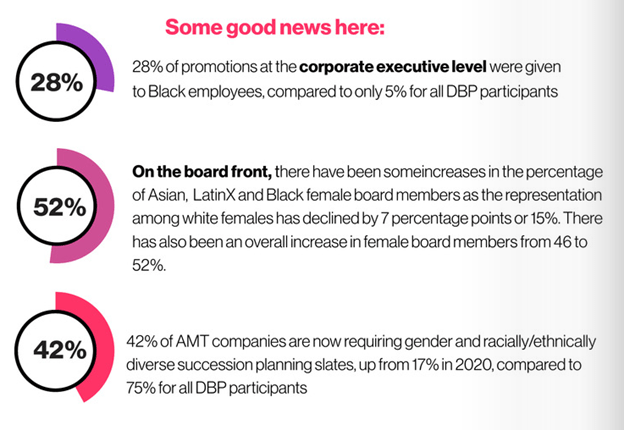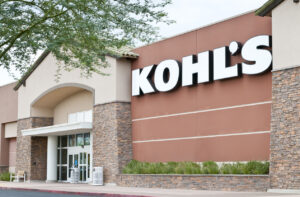Relief orgs tweet support following tornadoes, more Black employees received C-level promotions in 2021, and how Patagonia used its CEO to share core values
Also: FTC warns shoppers against gift card scams, Peloton responds to HBO product placement, and more.
Hello, communicators:
The Federal Trade Commission (FTC) is reminding shoppers to be wary of gift card scams, noting that Americans lost $148 million to fraudulent gift cards in the first nine months of the year.
The federal agency noted also that Target gift cards, in particular, appear to be the most popular choice for scammers.
The FTC reports gift card scams have increased every year for the past three years, message it hopes to drive home with video storytelling:
Coming two weeks before Christmas, when busy shoppers can be most susceptible to holiday scams, the agency’s message is an example of finding ways to stand out using popular channels for online audiences.
Here are today’s other top stories:
Twitter an essential channel for relief orgs after tornadoes
Local and federal relief agencies took to Twitter in the aftermath of the deadly string of tornadoes which destroyed homes and businesses in Illinois, Kentucky and Tennessee late last week.
The Kentucky Red Cross shared an infographic with tips for locating missing people amid spotty cellphone service:
Use our Safe & Well website to let loved ones know you are safe. Visit https://t.co/YIq6UFDWt7 and choose “Kentucky Tornadoes, December 2021.” If you are unable to locate or connect with a loved one who has been impacted by the storms, try following some of the steps below. pic.twitter.com/H6Cp73v2su
— Kentucky Red Cross (@KYRedCross) December 11, 2021
Kentucky’s state department of emergency management issued an advisory about avoiding dangerous areas during search and rescue efforts:
We want to help keep you and responders safe. PLEASE avoid areas where emergency personnel or utility personnel are assisting in the tornado recovery efforts. Stay off the roadways. Always assume any downed wire is energized and avoid the area.
— KYEM (@KentuckyEM) December 12, 2021
FEMA’s spokesperson tweeted coverage of the agency’s listening sessions for emergency responders:
Following a tour of the damaged areas in Benton and Mayfield, @FEMA_Deanne addresses a room full of local officials and emergency responders and takes their questions. We’re here to listen, respond and support these communities and survivors as they recover. pic.twitter.com/IMgR9rC7ED
— Jaclyn Rothenberg (she/her) (@FEMAspox) December 12, 2021
And the agency spotlighted the work of Kentucky organizations collecting donations to aid in cleanup:
Looking to help support the response efforts for the recent tornado outbreak? Financial contributions to recognized disaster relief organizations are the fastest, most flexible, and most effective method of donating. Visit: https://t.co/egimYcgUTb https://t.co/YlYQCgHnkL
— FEMA (@fema) December 12, 2021
Why it matters: From providing emergency updates to spotlighting the work of relief organizations and showing how you communicate with responders, social media remains one of the best tools for disaster communications because of its short-form structure and wide reach.
MEASURED THOUGHTS
A new study by SheRunsIt and Seramount found that 28% of promotions at the corporate executive level in tech, media and marketing were given to Black employees in 2021.

Courtesy of SheRunsIt/Seramount
As marketing seeks to embrace smarter, more ethical practices for recruiting and retaining diverse talent, the study shows a promising trend in industry C-level promotions and board seats.
Check out the full study here.
TAKE OUR SURVEY
If you’re looking to further your understanding of your industry to navigate what’s ahead in 2022, lend us a hand—and help yourself and your peers identify shared benchmarks in areas such as budgets, team structure, ESG and DE&I efforts, and more. Participate in Ragan Communications Leadership Council’s 2022 Benchmark Survey, a comprehensive look at how to negotiate budgets with your executives, how to best reach deskless workers and foster culture among a hybrid workforce, and more.
Both internal and external communicators are encouraged to participate.
By taking part, you’ll be entered to win one of three $100 gift cards. All who complete the survey will receive a full report on the findings. Responses are anonymous.
Survey takers will receive an executive summary of the findings.
CRISIS COMMUNICATIONS
Is all press good press? Despite garnering an otherwise enviable product placement in HBO’s reboot of “Sex and the City,” Peloton issued a statement and tongue-in-cheek ad following the death of one of the series’ main characters immediately after using one of the company’s exercise bikes.
Dr. Suzanne Steinbaum, a preventative cardiologist and member of Peloton’s health and wellness advisory council, told the LA Times:
“I’m sure ‘SATC’ fans, like me, are saddened by the news that Mr. Big dies of a heart attack. Mr. Big lived what many would call an extravagant lifestyle—including cocktails, cigars, and big steaks—and was at serious risk as he had a previous cardiac event in Season 6. These lifestyle choices and perhaps even his family history, which often is a significant factor, were the likely cause of his death. Riding his Peloton Bike may have even helped delay his cardiac event.”
The exercise equipment company then released a video showing the actor who plays Mr. Big, Chris Noth, alive and well, sitting next to the Peloton instructor who led his last on-screen ride.
And just like that…he’s alive. pic.twitter.com/bVX8uWypFZ
— Peloton (@onepeloton) December 12, 2021
While Peloton said it was aware that its bike would appear in “And Just Like That…,” many speculated that its ties to Mr. Big’s death had come as a surprise to the company.
Peloton’s short video—featuring narrator Ryan Reynolds—shows that the company not only knew about the nature of the product placement, but had planned marketing tied to it. Reynolds has his own history with Peloton, having capitalized on the viral ad campaign that saw backlash to Peloton’s ad about a woman who was given a Peloton by her husband for Christmas.
Announcing the PR Daily Leadership Network
PR Daily is launching the PR Daily Leadership Network, a unique membership group from Ragan Communications offering peer-to-peer advisory and team training along with a unique slate of resources and events to help public relations professionals break through the noise, increase their visibility and forge meaningful connections.
The Network provides daily insights and coverage on a range of topics including media relations, social media, measurement, Diversity, Equity & Inclusion, branding, thought leadership and crisis communications.
“The fast pace of change coupled with the demand on public relations professionals to protect and sometimes defend their company’s reputation make it imperative for leaders to tap into the wisdom of other communicators and continue to learn and grow,” says Diane Schwartz, CEO of Ragan Communications. “The PR Daily Leadership Network provides the answers but also encourages members to question the status quo and push for positive change.”
Visit leadership.prdaily.com to learn more.
Patagonia’s CEO defines how company advocates around core values
Patagonia CEO Ryan Gellert spoke to the New York Times about balancing the outdoor outfitter’s values against the company’s business and growth goals.
Gellert discussed his background in extreme sports and environmentalism along with Patagonia’s commitment to fighting climate change in a politically polarized world.
“If you really want to understand a business and its intent, look at its body of work and make your own decision. I am comfortable with the imperfect but consistently committed body of work that Patagonia has delivered. We try to be relentlessly transparent, both internally and externally, about the work we’re doing and our shortcomings.”
“My belief is that our biggest contribution has not been the money we’ve given away. It’s not individual issues that we’ve advocated for. It’s not scaling grass-roots environmental activism through different levels of support. It’s operating from the bowels of business and proving that businesses can exist to do more than maximize the wealth of their owners, really consistently proving that in ways big and small over decades.”
What it means: Patagonia often stands out as an example of a company at the forefront of corporate social responsibility (CSR). It continues to exemplify the practice of living its values, just as it did when Gellert organized a Facebook ad boycott in protest of Meta’s “hate speech and misinformation about climate change.”
Gellert’s interview is a reminder for companies to identify how their purpose connects to greater societal needs and that being a values-driven company requires incorporating those choices into your organization from the very beginning.







